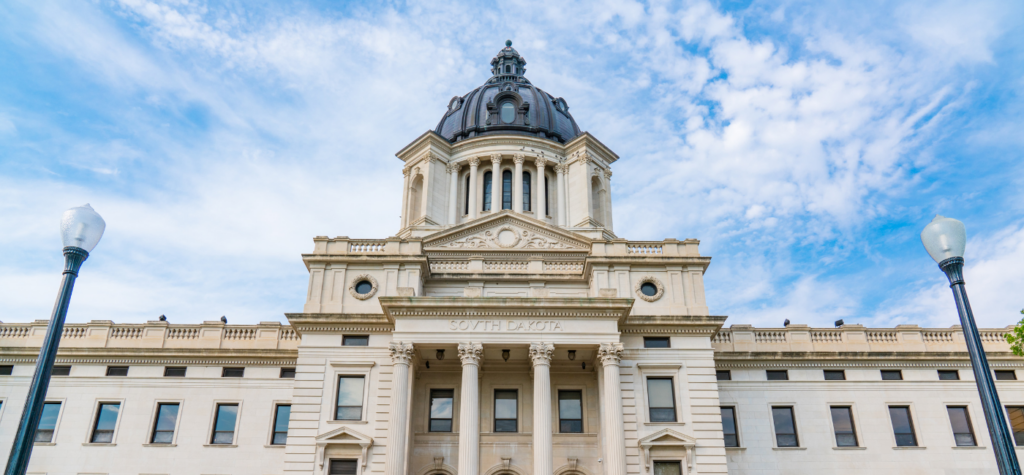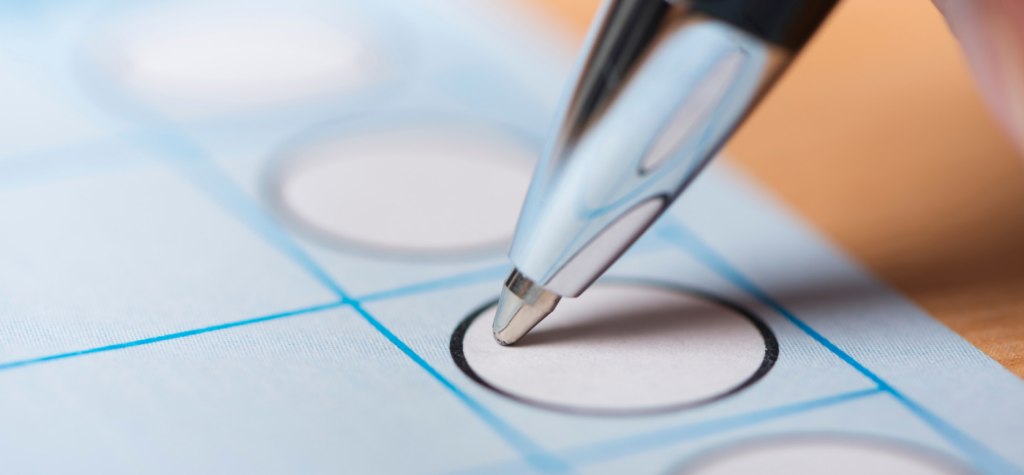South Dakota Cannabis Tax & the Battle to Approve Adult-Use Sales

In South Dakota’s journey towards adult-use sales, 420 CPA explores the future of South Dakota cannabis tax and finance for companies currently facing the challenging landscape. Advocates in the state are preparing for another battle to legalize adult-use cannabis by 2024, with two competing initiatives underway, but the future remains uncertain as we navigate the rocky terrain.
When its voters voted in favor of two ballot initiatives in 2020, South Dakota did the unthinkable: it went from being a prohibition state to a state where medical and adult-use were both legalized simultaneously.
But then the courts overturned the adult-use initiative on a technicality, and on July 1, 2021, South Dakota began its fiscal year as a medicinal-use-only state.
Now, more than three years and a second failed legalization attempt later, pro-cannabis forces are gearing up for a final a battle to make the Mount Rushmore state the 25th in the union to embrace adult-use cannabis. And the outcome of that battle is not at all assured.
Understanding the South Dakota Cannabis Tax Framework

South Dakota Cannabis Tax Perspective: Medicinal Sales are Taxed
A predominantly rural state with only 909,000 people, South Dakota is very friendly to its citizens from an income tax perspective, having neither an individual or corporate income tax, but it is not so kind to its cannabis patients.
Medical cardholders in most other states are exempt from paying sales tax on cannabis purchases. Patients in South Dakota, however, are charged the state’s 4.5% sales tax when they purchase their cannabis from one of 79 dispensaries. If sold within a city’s limits, 2% municipal sales tax is added to the total, and prepared cannabis products, like cookies, gummies and drinks, incur an additional municipal gross receipts tax of 1%.

South Dakota does not treat medicinal sales as non-taxable prescribed medication because cannabis is not a federally recognized as such. The Department of Revenue’s Fall 2022 newsletter explains: “Although it’s called medical cannabis, South Dakota does not recognize medical cannabis as a drug [because it is not listed in] the United States Pharmacopoeia, official Homeopathic Pharmacopoeia of the United States, or the official National Formulary.”
Limited Qualifying Conditions
Those conditions which qualify a patient for a cannabis card are limited. The state website lists as acceptable diagnoses “a chronic or debilitating disease or medical condition or its treatment that produces one or more of the following: cachexia or wasting syndrome; severe, debilitating pain; severe nausea; seizures; or severe and persistent muscle spasms, including those characteristic of multiple sclerosis”.
Non-Medical Possession Carries Heavy Penalties
South Dakota has some of the harshest cannabis laws in the United States. Possession of any amounts of edibles, hash and concentrates is a Class 4 felony, punishable by up to 10 years in prison and a fine of up to $20,000. Even possession of more than 2 ounces is also a felony with a minimum 2 year’s incarceration and $4,000 fine and a possible civil penalty of $10,000 imposed on top. Even possession of empty paraphernalia nets a misdemeanor, a $500 fine, and 30 days in jail.
South Dakota Nearly Got Adult-Use Cannabis in 2021
In a never-before-seen situation, South Dakotans passed two separate measures in 2020, Measure 26 which approved the use of medical cannabis, and Amendment A, which amended the state constitution to allow for the adult-use sale of cannabis. This would have allowed the state to become the first to go from prohibition to full adult-use without spending time as a medical-only state.

However, a judge decided in favor of a lawsuit that claimed Amendment A was unconstitutional by violating the state’s single-subject rule for ballot measures, a rule which requires that ballot initiatives address only a single topic or issue. (Of the 26 states that provide for at least one type of statewide citizen-initiated measure, 16 have single-subject rules.) The court’s decision was appealed to the South Dakota Supreme Court where justices upheld the ruling 4-1, striking down adult-use.
2022 Saw Another Pro-Adult-Use Initiative Bite the Dust
2022 saw another adult-use legalization put on the November ballot, but that measure was rejected by the voters with 53% voting no. Proponents of the measure put the defeat down to low voter turnout during a mid-term election coupled with insufficient funding.
Two Cannabis Initiatives Are Competing in 2024
Now, supporters of adult-use cannabis in South Dakota are fuming. Out-maneuvered on a legal technicality in 2021 and out-spent in 2022, they’re determined to come up with a win in November 2024. To do this, two competing ballot initiatives are being brought to the voters, and the teams behind each are currently collecting the 17,509 signatures required to have their initiative placed on November’s ballot. Both initiatives will receive their official measure number once the required signatures are received by the state.

The first, titled An Initiated Measure Legalizing the Recreational Use, Possession, and Distribution of Marijuana, does not mention adult-use sales but instead would legalize individual adult-use cultivation and possession of small amounts of cannabis.
The second, titled Initiated Measure To Legalize Recreational Marijuana and Create Dual-Use Licenses, would allow adult-use home cultivation and would also enable medical dispensaries to also sell adult-use cannabis through the creation of “dual-use” licenses. This measure allows for licensing fees not exceeding $5,000 per year but is silent on any type of cannabis excise tax in building the South Dakota cannabis tax framework.
Meanwhile, South Dakota Cannabis is Under Attack
At the same time as the two pro-adult-use measures are gaining steam and supporters, an anti-cannabis activist has put forward two other ballot measures. One would repeal the state’s medical marijuana law, while the other would keep federally banned substances from ever being legalized by voters. Many are questioning whether the individual behind the initiatives will be able to garner enough signatures to get them on the ballot. However, cannabis supporters and South Dakota’s media are keeping a close watch on his efforts.

Hopes for Legalization of Adult-Use Are High
A May 2023 poll by South Dakota State University showed more South Dakota voters support legalization of adult-use cannabis (49%) than oppose it (31%), with 10% undecided. The job of cannabis organizers will be to win over those still straddling the fence.
To this end, the organizers of both measures are optimistic there will be a strong turnout for the presidential election in November and are emphasizing ample funding as an important key to their success. Matthew Schweich, director of South Dakotans for Better Marijuana Laws, the sponsor for the bill that emphasizes individual adult-use cannabis cultivation and possession, stated in the fall of 2023, “I will not invest [our supporters’] time or effort into a campaign unless I really feel confident that sufficient funding will be available. Otherwise, we risk losing twice in a row, and that is incredibly unpalatable.”
For all the latest updates on evolving markets across the cannabis industry, be sure to subscribe to our newsletter here. Reach out to Stephanie Jeffries at info@420cpa.com to book a consultation and learn how we can help your cannabis company navigate financial success in dynamic markets.
About Our Authors
Abraham Finberg, Managing Partner
Abraham Finberg MBA, CPA, managing partner at AB FinWright, has been a leader in the cannabis sphere since 2009, counseling clients in all phases of business advisory and tax, from start-up through M&A and IPO.
Rachel Wright, Managing Partner
Rachel Wright, MST, CPA, managing partner at AB FinWright, specializes in cannabis accounting and taxation for multi-state and multinational entities, advising clients on everything from internal controls to the bottom-line implications of mixed local, state, federal and international statutes of taxation.






